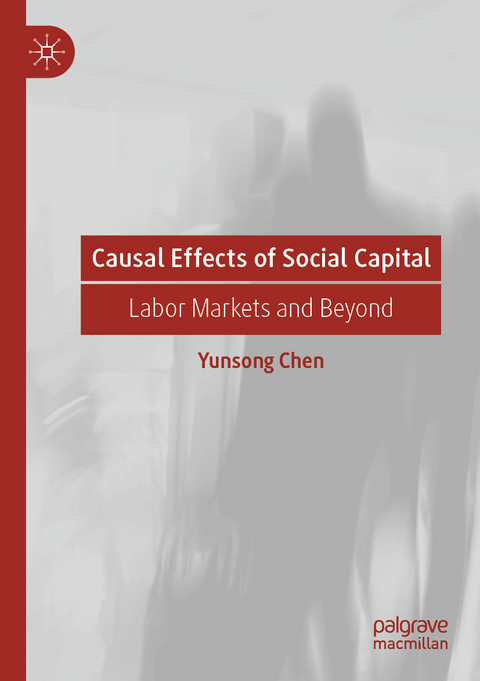
Causal Effects of Social Capital
Palgrave Macmillan (Verlag)
978-981-19-5914-1 (ISBN)
First, this book constitutes the first attempt to offer a systematic account of the progress made by social scientists in improving causal inferences into the role of social capital in labor markets. Second, the book adopts specialized approaches-both classical and new-toward different sources of endogeneity. Incorporating the latest research from outside fields, such as economics, into sociological research is a small but significant methodological innovation. Third, in addition to empirical research, this book undertakes an innovative exploration of the theory of social capital. It creatively explains the dynamic evolution of social capital, which helps balance objectivism and subjectivism when analyzing interpersonal actions.
For sociologists who focus on quantitative research methods and social capital, scholars who study Chinese societies, and related students, this book provides both advanced methods and rich empirical research.
Yunsong Chen is a Changjiang Scholars Distinguished Professor of Sociology at Nanjing University. He earned his DPhil in Sociology at Nuffield College, University of Oxford. He has broad research interests in the fields of quantitative sociology (e.g., social networks, social capital, and advanced models for causal inference) and computational sociology. His academic work has appeared in leading English-language journals in the social sciences, including Social Networks, Social Science Research, British Journal of Sociology, Poetics, and Journal of Contemporary China and Scientific Reports, as well as Chinese journals, including Social Science in China and Journal of Chinese Sociology. He serves on the editorial board and international advisory board for several journals, including Sociology, Social Science Research, Journal of Social Computing, and Chinese Sociological Review. His newest book, Understanding China through Big Data, was published by Routledge in 2021.
Introduction.- Part I: Causality in Social Capital Studies.- Chapter 1: On Endogeneity Problems: Challenges and Empirical Strategies of Causal Inference.- Chapter 2: Placing Causality at the Heart of Social Capital Research: A Literature Review.- Part II: Contact Usage and Resources.- Chapter 3: Using Contacts is Hardly Beneficial: The Treatment Effects of Using Social Capital.- Chapter 4: The Significance of Contact Resources and Homophily: The Effects of Used Social Capital.- Part III: Network Resources.- Chapter 5: Village Networks and Migrants' Salaries: The Impact of Acquaintance Networks.- Chapter 6: Occupational Interactions and Wages: The Influence of Colleague Networks.- Chapter 7: Educational Attainments of Friends and Job Status: The Role of Friendship Networks.- Part IV: Miscellaneous.- Chapter 8: Guanxi Networking, Associations, and Political Trust: Beyond the Labor Market.- Chapter 9: Identifying Typology of Tie Strength: A Latent Class Analysis.- Chapter 10: Toward a Dynamic Model: Habitus, Fields, and a Tale of Two Manchus.- Part V: Coda.- Chapter 11: Conclusions and Future Directions.
| Erscheinungsdatum | 05.10.2023 |
|---|---|
| Zusatzinfo | 3 Illustrations, color; 14 Illustrations, black and white; XVI, 483 p. 17 illus., 3 illus. in color. |
| Sprache | englisch |
| Maße | 148 x 210 mm |
| Themenwelt | Sozialwissenschaften ► Soziologie ► Allgemeine Soziologie |
| Sozialwissenschaften ► Soziologie ► Makrosoziologie | |
| Schlagworte | Causal effects • China • Contact • Endogeneity • German Democratic Republic (GDR) • labor markets • Network • Social capital • United States |
| ISBN-10 | 981-19-5914-5 / 9811959145 |
| ISBN-13 | 978-981-19-5914-1 / 9789811959141 |
| Zustand | Neuware |
| Informationen gemäß Produktsicherheitsverordnung (GPSR) | |
| Haben Sie eine Frage zum Produkt? |
aus dem Bereich


